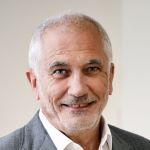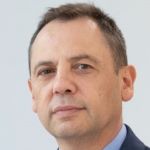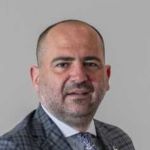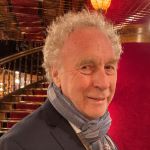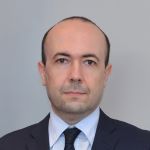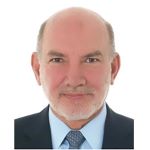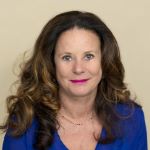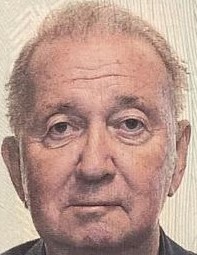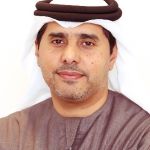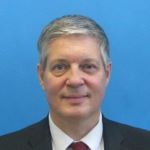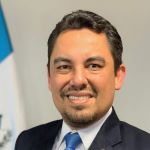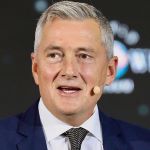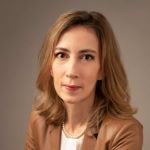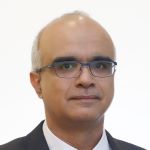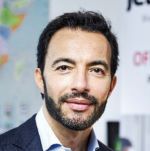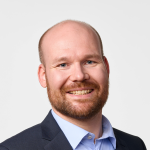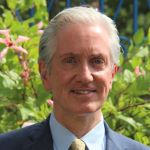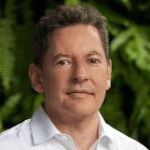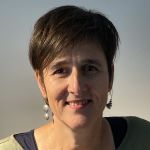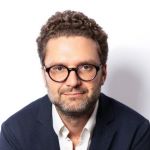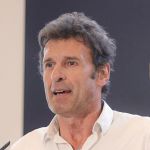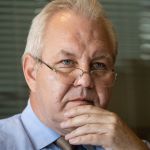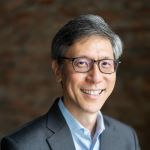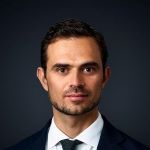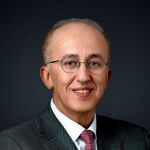CEO of BWI. A graduate of HEC Paris, Mr. Fain’s entrepreneurial journey began in 2007 when he co-founded Verteego, a pioneering force in the artificial intelligence and impact startup realms, known for its early entry into the software-as-a-service sustainability market. In 2018, he assumed the role of CEO at Welcomr, a prominent building access control SaaS vendor. Driven by a passion for technology-driven impact, he joined BWI as CEO in 2022. BWI, or Blue Water Intelligence, leverages satellite data and machine learning to deliver advanced hydrological forecasts, with the vision of empowering basin digitization through the deployment of virtual stations, offering critical continental freshwater data and insights anytime, anywhere. Mr. Fain’s journey embodies a commitment to leveraging technology for sustainable, impactful solutions, shaping the software industry’s future and driving global change.
Paul Boudre
Senior Managing Director of Silian Partners who brings c.35 years of semiconductor experience. As Chief Executive Officer of Soitec from 2015 to 2022, he successfully led the company through a restructuring and positioned it as a global leader of engineered semiconductor materials. Prior to Soitec, he held senior positions in semiconductor equipment and manufacturing with KLA, STMicroelectronics, IBM Microelectronics, Motorola Semiconductor and Atmel.
Kamel Abdallah
Managing Director & CEO of Canal Sugar, a UAE-Egyptian multibillion dollar agricultural industrial group in Egypt that aims to ensure Egypt self-sufficiency in sugar. Dr. Kamel Abdallah is a national food security expert, specializing in turnaround management and leadership of large agricultural industrial groups in the region. For over twenty years, he has led large regional companies with emphasis on Agri-Food companies in the Middle East with turnaround mandates. He has served in Board Director/Managing Director/CEO positions in Agri/Food based companies, including Baladna QPSC, Aujan Industries/Rani Investments, and Exeed Industries/National Holding. Dr. Abdallah remains integrated with the industry and with academia, where he has served as Asst Vice President of the American University of Beirut; and Professor of Strategy and Finance as well as being a tenured Prof and department chair at accredited business schools in the USA. Dr. Abdallah holds a Ph.D in Strategic Management & Finance (OSU), and is a graduate of the Harvard Business School Agri Business management program.
Ridi Kurtezi
Ambassador of the Republic of Albania to the UAE.
Maryam Al Mansoori
General Manager of Rebound, a solution-oriented business focused on keeping plastics out of the environment and within the economy. She has extensive experience in government policy and strategic programs, locally and globally. Her expertise in economics and the environment has enabled her to develop key policies, approved by the Cabinet, in collaboration with stakeholders and ministries. She holds professional accreditation certificates in Public Policy Analysis, Policy Coherence for Sustainable Development, and Strategic Policy Planning. She is dedicated to public service and empowering youth in climate-related decision-making. With the support of the UAE government and the backing of the IHC of Abu Dhabi, she has spearheaded the development of innovative and sustainable solutions at Rebound. Her diverse background and expertise contribute greatly to Rebound’s mission of reducing plastic waste and ensuring a more sustainable future.
Olivier Huby
Co-Founder and Board member of MFEX Mutual Funds Exchange, a global B2B fund distribution platform present in 63 countries, now a fully-owned subsidiary of the Euroclear group. Following his diplomatic service in Eastern Europe, Olivier worked with the Paribas group in Asset Management, then at AXA. He was educated at the École nationale des ponts et chaussées in Paris and at Massachusetts Institute of Technology (MIT). He is actively involved as an investor and advisor with startups and growth companies in the areas of engineering, finance and logistics. He is a member of the French and Russian Geographic Societies, as well as the Royal Geographical Society. He is also actively contributing to the organization of cultural events, in particular for classical music and ballet and the sponsoring of young artists in Europe and in Russia.
Fariz Rzayev
Deputy Minister of Foreign Affairs since 2020, he has been Deputy Chef in the Secretariat of the First Vice-President of the Republic of Azerbaijan since 2017. He held different positions in the Ministry of Foreign Affairs between 2000 and 2013, before joining the Ministry of Education as Director of the International Cooperation Department from 2013 to 2015, Deputy Chief of Staff from 2015 to 2017, and Chief of Staff between January and June 2017. He holds a BA in International Relations from the Baku Institute of Political Science and Social Management, and a MA in International Relations from the Public Administration Academy under the President of the Republic of Azerbaijan.
Christophe Poinssot
Deputy Director General and Scientific Director of the French Geological Survey BRGM. He is in charge of defining and implementing the overall scientific strategy of BRGM in the field of water and global warming, critical raw materials and circular economy, natural and technological risks, the development of geological knowledge and associated numerical data and services. He is also for 2023 and 2024 the Elected president of EuroGeoSurveys, association of the European National Geological Surveys. Before joining BRGM, Christophe Poinssot worked for 25 years in the French Atomic and Alternative Energy Commission (CEA) where he held several management positions in the field of R&D. From 2008 to 2018, he directed the CEA research department in charge of developing the recycling technologies of nuclear fuels, before being from 2018 to 2020, the Nuclear Counsellor at the French Embassy in China (Beijing) and the CEA Representative in this country. At CEA, he developed a recognized expertise in environmental and nuclear chemistry. He authored over 60 papers in international journals (impact factor >28), over 120 oral presentations in international conferences, and has been teaching in many universities and engineering school. His work in the 2010’s on the environmental footprint and the sustainability of nuclear energy, was awarded in 2017 by the Roger Van Geen Prize from the Foundation for Scientific Research (Belgium). He is decorated as Officer of the Palmes Académiques since 2017. Christophe Poinssot is a former student from the École Normale Supérieure of Paris where he graduated in Earth Sciences and Materials Science. He got his Ph.D in Materials Science in 1997 from the Paris University, an HDR (Habilitation to Manage Research) in 2007 in Chemistry from the Saclay University, and was awarded from the Institute of National Defense Studies (IHEDN) in 2023.
Ameena Al-Sumaiti
Associate Professor of Electrical Engineering and Computer Science, Dr. Ameena Al-Sumaiti is a highly accomplished academic with a passion for research that drives impact in the UAE. Listed among the top 2% of scientists in the world for research citations in 2021 and 2022, she is an expert in the fields of renewable energy, smart city planning, transportation networks, data analytics, and other aspects of energy, technology, and advanced sciences. Dr. Al-Sumaiti has participated in the National Experts Program NEP 3.0, representing the “Advanced Sciences and Research” sector, a key contributing sector to economic growth. She was also on the shortlist of a national talent search among 2000 applicants. She received her Doctorate and Master degrees in Electrical and Computer Engineering from the University of Waterloo (Canada) in 2015 and 2010, respectively. She was a visiting professor at The Massachusetts Institute of Technology (USA) in 2017 and is currently with Khalifa University as an Associate Professor. Dr. Al-Sumaiti received more than 50 awards, recognitions, and local and international fellowships, and has made significant contributions to society through capacity-building, education, and research. Dr. Al-Sumaiti has 4-electronic newsletters, 7 book chapters, 97 journal articles and 43 conference articles.
Luis Alfonso De Alba
Ambassador of Mexico to the United Arab Emirates. He is a career diplomat. After entering the Mexican Foreign Service, he rose to the rank of Ambassador. He previously served as: Special Envoy of the United Nations Secretary General for the 2019 Climate Change Summit. Permanent Representative of Mexico to the Organization of the American States; to Austria, concurrent to Slovenia and Slovakia and to International Organizations based in Vienna; to the United Nations in New York; and to the United Nations Office and other International Organizations based in Geneva. He was also Special Representative for Climate Change at the Ministry of Foreign Affairs, Alternate Representative of Mexico to the United Nations Organization in New York, and Director General for the United Nations System for the Ministry of Foreign Affairs. He has held elected positions as: President of the 24th Session of the United Nations Commission on Crime Prevention and Criminal Justice, First President of the Human Rights Council, President of the Council of the International Organization for Migration and President of the Commission on Disarmament and International Security (First Commission) during the 59th Session of the United Nations General Assembly.
Isabelle Lasserre
Diplomatic Correspondent of Le Figaro. Previously, she has been Defense Correspondent, Correspondent in Russia and War Reporter (Bosnia, Chechya, Kosovo, Irak, Afghanistan…) for the same newspaper. She also works for Politique Internationale, the main European review dedicated to foreign affairs in French. Her last book, Macron –Putin, the dangerous relationship (L’Observatoire), was published last april.
Terje Roed-Larsen
Former United Nations Secretary General’s, Special Coordinator for the Middle East Peace Process and Personal Representative to the Palestinian authority (PA) and the Palestine Liberation Organization (PLO), at the rank of Under-Secretary-General (1994 – 1996 / 1999 – 2005), Terje Roed-Larsen graduated in Philosophy, History, and Sociology in the University of Oslo in 1976. He began his career as a Research assistant at the Institute for Sociology of Law of the University of Oslo (1973 – 1978), as a British Academy Wolfson Fellow, at the London School of Economics (LSE), then as Assistant professor at the Institute for Sociology of the Universities of Oslo, and of Bergen. He was Advisor to the Minister for Planning in the Government of Norway and Minister for Administration (1980), and at Norwegian Trade Unions (1981). From 1982 to 1993, he was Managing Director at the research Foundation Fafo, and became Special Advisor to the Norwegian Foreign Minister, at the rank of ambassador in 1994 and from 1997 to 1999. He also was Minister for Planning in 1996. He was UN Secretary-Generals Special Envoy to Lebanon, at the rank of Under-Secretary-General (2005 – 2015), and President and CEO of International Peace Institute (IPI), NY USA (2005 – 2020).
Mohammed Baharoon
Director of the Dubai Public Policy Research Center (b’huth) which he co-founded in 2002. Before that, he worked as Editor for Gulf Defense Magazine and a number of media outlets. He focuses on the interplay between geostrategy and policymaking in governance, stability, capacity building, and future-proofing. Mohammed Baharoon has also worked as Deputy Director of Watani (UAE’s first initiative on National Identity) and was also a founding member of the board of “Bussola Institute” a think tank in Brussels that focuses on the changing and emerging aspects of the partnership between the EU and the GCC member states. As part of his interest in the emerging geostrategic space of the Arabian Peninsula, Mohammed looks at the interconnected world order and the Global Connectivity Agenda UAE is developing across the region through arteries of trade, money, people, and data and the impact this had on its regional and global partnerships including regional and trans-regional initiatives like the Abrahamic Accords & I2U2.
Alexander Schönfelder
Ambassador of the Federal Republic of Germany to the UAE since 2022. He began his career in economics at the German Development Institute (DIE) in 1988, followed by a stint as a UN official with UNIDO from 1989 to 1993. In 1993, Ambassador Schönfelder joined the staff of the Federal Foreign Office and served in various foreign postings, including the United States, Thailand, Japan, Iraq, and Algeria. He held leadership positions such as Deputy Head of Division for International Energy Policy (2007 – 2011) and Head of Division for General Economic Issues in International Economic and Financial Policy (2014 – 2018). In 2018, he became Deputy Director General for Economic Policy, Foreign Trade Promotion, and Digital Transformation.
Willy Alberto Gómez Tirado
Ambassador of the Republic of Guatemala to the UAE. Concurrent Ambassador to Kingdom of Barhain, Kingdom of Saudi Arabia and State of Kuwait. He previously served as Ambassador of the Republic of Guatemala to the Republic of China (Taiwan). He has been decorated with the Order of the Brilliant Star in degree of Grand Cordon by the government of the Republic of China (Taiwan). He served as Academic Rector and Dean of the Leadership School at the Universidad San Pablo de Guatemala. He was a member of the Group of advisors for the National Council of Science and Technology (CONCYT). In an Ad Honorem manner, he served as a Vice President of Guatemala Prospera, an organization that seeks the development of Guatemalan children and youth, and the formation of principle and values in organizations of the country. He was a Consultant for USAID in Educational Technology for projects oriented to develop professions in young people from marginal regions of Guatemala.
Clare Lombardelli
Chief Economist and G20 Finance Deputy of the OECD since May 2023. She ensures that the Department is at the forefront of economic thinking, coordinates the work of the Country and Policy Studies branches to create new opportunities and enhance cooperation with the whole of the OECD. Prior to joining the OECD, Ms. Lombardelli was the Chief Economic Advisor at HM Treasury. She started her career at the Bank of England working on monetary policy and financial markets and has also worked in 10 Downing Street as the Private Secretary for Economic Affairs to the Prime Minister. Ms. Lombardelli also worked as a Technical Advisor for the International Monetary Fund. A British national, she holds a Master’s Degree in Economics from London School of Economics and Political Science and a Bachelor’s Degree in Philosophy, Politics and Economics from Oxford University. She is a Visiting Professor at Kings College, London and a Visiting Fellow at Nuffield College, Oxford.
Terry Martin
Journalist and TV news anchor. Terry Martin is a Berlin-based broadcaster with decades of experience in international news. Formerly an anchor with CNN International, he is now Senior Anchor with DW News, Germany’s global service. He is also the Founder and Director of the research communications agency SPIA. As a television correspondent, he has provided live coverage from G7 summits, UN climate conferences, and multiple national elections. He has hosted scores of tv discussion programs and interviewed countless political and business leaders, scientists, and activists around the world. Frequently in demand as an event moderator, he has moderated major conferences for public and private-sector clients in Europe, Asia, and the Middle East. He is a regular host at GLOBSEC’s Bratislava Forum, The Warsaw Security Forum, and the World Knowledge Forum in Seoul. For several years, he served as Contributing Editor and Germany Correspondent for Europe Magazine and wrote a bimonthly newsletter on foreign investment. In 2010, he wrote the European Commission’s widely used guidebook “Communicating research for evidence-based policymaking”. Born in Canada, he studied English and philosophy at universities in the US (B.A. Elon College, Masters studies Wake Forest University) before moving to Germany shortly after the fall of The Berlin Wall.
Emmanuelle Trochu
Global Head of Official Institutions Coverage at Crédit Agricole Corporate and Investment Bank. Emmanuelle Trochu started her career in 1994 in Banque de France as a forex trader and then Foreign Exchange Reserves Portfolio Manager. She participated in several European working groups to prepare the ECB foreign exchange reserves set up. She joined Credit Agricole group in 2000 as a Central Banks Sales. She became Global Head of the central bank sales team in 2006 and has worked in Paris in London. In 2016 she was appointed Head of Sales for Financial Institutions in France and Belgium on top of her role as Head of the Central banks sales team. She joined Ca-cib coverage in 2020, as Head of the Official Institutions sector. In this capacity she oversees the activity of Crédit Agricole CIB with Sovereigns, Supranationals, State Agencies, Sovereign Wealth Funds and Central Banks, across geographies. Emmanuelle Trochu holds a master in French Litterature, she graduated from Institut d’Etudes Politiques de Paris and Ecole Supérieure de Commerce de Paris (Master in Finance). She is an Eisenhower Fellow (2015 global program).
Kamal R Vaswani
Ambassador of the Republic of Singapore to the United Arab Emirates, based in Abu Dhabi. Born in 1970, Ambassador Vaswani graduated with a Bachelor of Business Administration, Second Class Honours (Upper Division) from the National University of Singapore in 1995. He obtained a Masters in International Public Policy from the School of Advanced International Studies, Johns Hopkins University in 2003, on a Singapore Government Scholarship. Ambassador Vaswani joined the Ministry of Foreign Affairs in July 1995. His first overseas assignment was as First Secretary at the Singapore High Commission in Kuala Lumpur from 1998 to 2002. Following his post-graduate studies, he served as an Assistant Director in the Policy, Planning & Analysis Directorate I (covering Southeast Asia). Ambassador Vaswani was posted as Counsellor at the Singapore Embassy in Jakarta from 2004 to 2008 and Deputy Permanent Representative at Singapore’s Permanent Mission to ASEAN from 2008 to 2009. He subsequently served as Deputy Director in the Southeast Asia Directorate from 2009 to 2012, and as Deputy Director-General for Southeast Asia from April 2012 to June 2015. Prior to his current appointment, Ambassador Vaswani was the Director-General for Europe from June 2015 to November 2019 anc concurrently Vice Dean (Academic)/Diplomatic Academy at the Ministry of Foreign Affairs, Singapore from July 2015 to November 2019. He was conferred the Commendation Medal in 2005 and Long Service Medal in 2018 as part of the Singapore National Day Awards.
Amir Ben Yahmed
Chief Executive Officer of Jeune Afrique Media Group. President of the Africa CEO Forum. After graduating from the INSEEC School of Business, Mr. Amir Ben Yahmed began his career at NYC-based investment banking firm Gruntal & Co. before joining Jeune Afrique Media Group, one of Africa’s leading media and event organisations. It is recognised internationally for its reach, authority, integrity and accuracy. In his capacity as Chief Executive Officer, Mr. Ben Yahmed actively pursues the Group’s strategy which is to provide essential news, expert analysis and services to Africa-focused clients around the world. In addition, Mr. Ben Yahmed is Founder and President of the AFRICA CEO FORUM, which, since its creation in 2012, has cemented its status as the foremost meeting of the African private sector. Each year, the Annual Summit of the AFRICA CEO FORUM brings together over 1,800 participants from more than 70 countries, including 40 African States. The 2022 edition saw the participation of more than 800 CEOs, 4 Heads of State, 100 Ministers, 100 heads of international development financial institutions and more than 200 journalists from Africa and overseas.
Philipp Offenberg
Senior Manager, Europe, Breakthrough Energy. Philipp Offenberg has spent several years building up expertise in the field of energy, climate action, and sustainability, while working in high-level public policy positions. He serves as Senior Manager on the Breakthrough Energy Europe team, having joined the team in January 2020 and is based in Brussels. Philipp is responsible for BE Europe’s EU-level policy engagement and Germany strategy. Between 2016-2019, Philipp worked as an Advisor on energy and climate policy in the strategy department of former European Commission President, Jean-Claude Juncker. Prior to that he was a Research Associate at both the King’s College London and at the Jacques Delors Institute Berlin. He also worked at the consulting firm Accenture, on the Utilities and Resources team.
François Gouyette
Chairman of Pro Oriente Conseil, Vice-Chairman for Public Diplomacy of The Global Diwan, Advisor to the Chairman of Diot-Siaci. François Gouyette has served as Ambassador of France from 2001 to 2023 in five Arab countries: UAE, Libya, Tunisia, Saudi Arabia and Algeria. He was previously DCM in Syria and Turkey. He has also been Diplomatic Advisor to the Minister of Interior and Ambassador in charge of the EUROMed process in the French Ministry of Foreign Affairs. He graduated in Law from the Paris University and in Arabic from the Oriental School in Paris.
Paul Rogers
Managing Partner of Caber Asset Management. Paul is Singapore based and runs his family office out of Singapore. He has ran Structured Finance for UBS & Lehman Brothers for Asia and subsequently ran a Private hedge fund group and real estate development companies building one of the major mixed used developments in Korea. He started out as an entrepreneur in venture business and has invested in and mentored start ups globally while based in Asia. He is focused on macro economic and geopolitical analysis as a framework for investing and security particularly given the current destruction of liberal democracy laws and social norms in the West resulting in the loss of individual and family rights and consequential loss of global relevance as the BRICS+ and global South seek to create an alternative to the prevalent Neo-Marxist identity politics social tyranny currently unfolding.
Els Torreele
Visiting Policy Fellow at the UCL Institute for Innovation & Public Purpose in London. She is a global health and innovation expert, focusing on transforming medical R&D to address priority health needs and ensure equitable access to knowledge and technologies where and when needed, including for epidemic preparedness and response. A Bio-Engineer and Ph.D. from Brussels University (VUB), for over 20 years she has combined scientific research, pharmaceutical R&D, policy analysis and research, and advocacy at Brussels University, Médecins Sans Frontières, Drugs for Neglected Diseases initiative, and Open Society Foundations. She is now an independent researcher and consultant including working with Rt. Hon. Helen Clark and other former members of the Independent Panel for Pandemic Preparedness and Response and with the WHO Council on the Economics of Health for All. She is a member of the WHO Technical Advisory Group on Vaccine Market Information for Access. A recent Rockefeller Bellagio Centre resident, she is also an Honorary Science Fellow at the VUB, and author on over 50 international journal publications including in the Lancet, BMJ, Nature, and Vaccines.
François Hurstel
CEO of Concerto, a fast-growing group specializing in economic intelligence, strategic communication, and public affairs, with a strong presence in emerging markets. François Hurstel founded Concerto in 2016 to support multinational companies, governments, and institutions on key challenges such as risk management, stakeholder engagement, as well as reputation, image, and influence. Today, Concerto operates in eight countries across Africa, Europe, and the Middle East. As CEO, François drives the group’s strategy and development while remaining actively involved in its growth and with certain strategic clients. Before founding Concerto, he worked at the United Nations, GL Events, and contributed to the creation of Hopscotch’s Africa division. He is a graduate of the London School of Economics (LSE) and Paris-Sorbonne University (Paris IV).
Jean-Michel Beacco
Chief Executive Officer of Institut Louis Bachelier, Associate Professor of Finance at Université Paris-Dauphine. Jean-Michel Beacco graduated from Ecole nationale des Ponts et Chaussées (engineer program) and Stanford Graduate School of Business (executive MBA program). He started his career in 1989 at Caisse des Dépôts et Consignations as an Asset and Liability Manager involved in the first French securitization program for social housing refinancing. From 1992 onwards, he headed the capital market’s Credit Trading, structuring and securitization department at Société Générale (1992-2000), CACIB (-2005) and Natixis (-2009). Since 2009, Jean-Michel Beacco has been Chief Executive Officer of Institut Louis Bachelier, a public-private Paris-based research center in economy and finance unique in Europe. Jean-Michel Beacco is Associate Professor of Finance at Université Paris-Dauphine and President of the Department of Economics at Ecole nationale des Ponts et Chaussées.
Vladislav Inozemtsev
Director of the Center for Post-Industrial Studies in Moscow, Special Advisor to MEMRI’s Russia Media Studies Project in Washington, DC. Dr. Inozemtsev is a Russian economist and political scientist, focusing on global economic issues, development of the knowledge economy in the West and modernization of the Third World nations, with special reference to Russia’s history and current policies. He founded the Center for Post-Industrial Studies in Moscow and has been its Director ever since, combining this activity with teaching at Moscow State University and the Higher School of Economics and numerous fellowships held in the US (Johns Hopkins University and CSIS) and Europe (DGAP in Berlin, Institute of Human Sciences in Vienna and Warsaw Institute of Advanced Studies, among many others). Dr. Inozemtsev served as an Advisor to the Commission on Modernization of the Russian Economy under President Dmitry Medvedev in 2009-2011, as the Chief Aide to Mikhail Prokhorov’s presidential bid in 2012, and as a member of Russia’s ‘Open Government’ in 2013-2014. He left Russia after the start of the war with Ukraine in 2014 and lives in Washington. Dr. Inozemtsev has authored more than 20 books and is a Columnist for the Neue Zürcher Zeitung, NRC Han-delsblad, The Independent, Gazeta Wyborcza and La Razon.
Jonathan Tow
Ambassador of Singapore to Türkiye from 2019 to 2023 and former senior diplomat with over 27 years of experience in government. He spearheaded Singapore’s multifaceted engagement with India and South Asia for eight years from 2011 to 2018. He also led negotiations for the India-Singapore Strategic Partnership in 2015 and helped establish Singapore as a co-founding member of the Indian Ocean Conference in 2016. He represented Singapore at the United Nations from 2007 to 2010, focusing on international security and the Non-Aligned Movement. A community volunteer since 2000, he is passionate about fostering inter-faith relations in Singapore’s multi-religious society. In 2019, he was conferred the Public Service Medal (PBM) by the President of Singapore in recognition of his contributions to the community.
Thierry Caboche
Head of International Public Affairs at Ardian since 2022. In this role, he also leads Ardian’s efforts in building relationships with development finance institutions and multilateral organizations. In addition, he contributes to the sourcing of joint ventures and partnerships for the international development of our portfolio companies. Previously, he worked as a diplomat for the French Foreign Office for over 15 years, specializing in the Middle East and multilateral organizations. Thierry has held various Embassy postings across the Middle East and served as the Chief of Staff and Spokesperson of the Ambassador of the French Mission to the United Nations in New York. He is based in Paris.
François-Aïssa Touazi
Senior Managing Partner at Ardian (the leading investment firm, 170 Bn of AUM) and Global Head of International Affairs. He is also Vice President of the French GCC Business councils at MEDEF International, the French largest business organization as well as Head of the Sovereign Wealth Funds Council. Prior to joining Ardian, he had served in the French Foreign Office for 15 years, including as MENA advisor to the Minister of Foreign Affairs. He is Board Member at Siaci Saint Honoré Group (Paris), a leading European insurance brokerage firm and at Dedalus, a world leader in IT software solutions for healthcare. François-Aïssa Touazi is Knight of the Legion of Honor.


